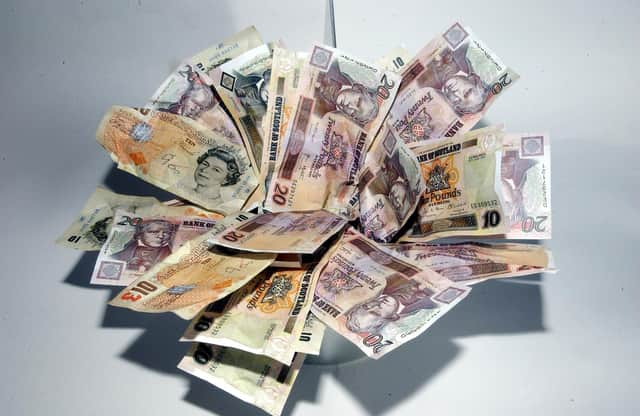Inflation rate cools and Coronavirus likely to push down further


The Office for National Statistics (ONS) said the consumer measure of inflation decreased to 1.7 per cent in February. That compares with 1.8 per cent in January, after the cost of energy and aeroplane tickets pushed household prices higher.
Mike Hardie, head of inflation at the ONS, said: “There was a slight slowing in the rate of inflation due mainly to falling prices for motor fuels and computer games.”
Advertisement
Hide AdAdvertisement
Hide AdMotor fuels had a “large downward contribution” after petrol prices fell by 2.4p per litre between January and February 2020, the ONS noted. It added that diesel prices fell by 3.2p per litre between January and February this year.
Discounts saw computer game prices fall for the month, although this was partly offset by higher concert ticket prices. Food inflation also slowed down to 0.2 per cent for the month, driven by cheaper bread, cereal and vegetables.
The latest decline moves the inflation figure slightly further away from the Bank of England’s target rate of 2 per cent, and economists have predicted that this figure is set to slip lower following the impact of the coronavirus pandemic.
Samuel Tombs, chief UK economist at Pantheon Macroeconomics, said: “Looking ahead, CPI inflation looks set to decline sharply over the coming months and to fall comfortably below 1 per cent in the summer.”
Howard Archer, chief economic adviser at EY Item Club, said: “Inflation looks certain to fall back sharply over the coming months.
“The recent plunge in oil prices to a 16-year low will bring inflation down, along with sharply weakened economic activity in the near term at least.
“The lockdown of the UK economy – reinforced by appreciable consumer concern over their jobs and pay (despite government support) – will hugely weigh down on demand and likely exert downward pressure on prices despite the supply side shock.”
The latest inflation figures were announced earlier than usual as the lockdown forced the ONS into altering its release procedures.
Advertisement
Hide AdAdvertisement
Hide AdPablo Shah, senior economist at the Centre for Economics and Business Research, noted: “The most significant drivers of prices in the months ahead will be the seismic effects of the coronavirus outbreak as well as the sweeping nature of the policy response.
“The dramatic fall in demand together with historically low commodity prices will generate considerable disinflationary pressures in the short term. However, if the weakness of the pound is sustained over the coming weeks this will begin to push up inflation via the effect on import costs.”
Comments
Want to join the conversation? Please or to comment on this article.